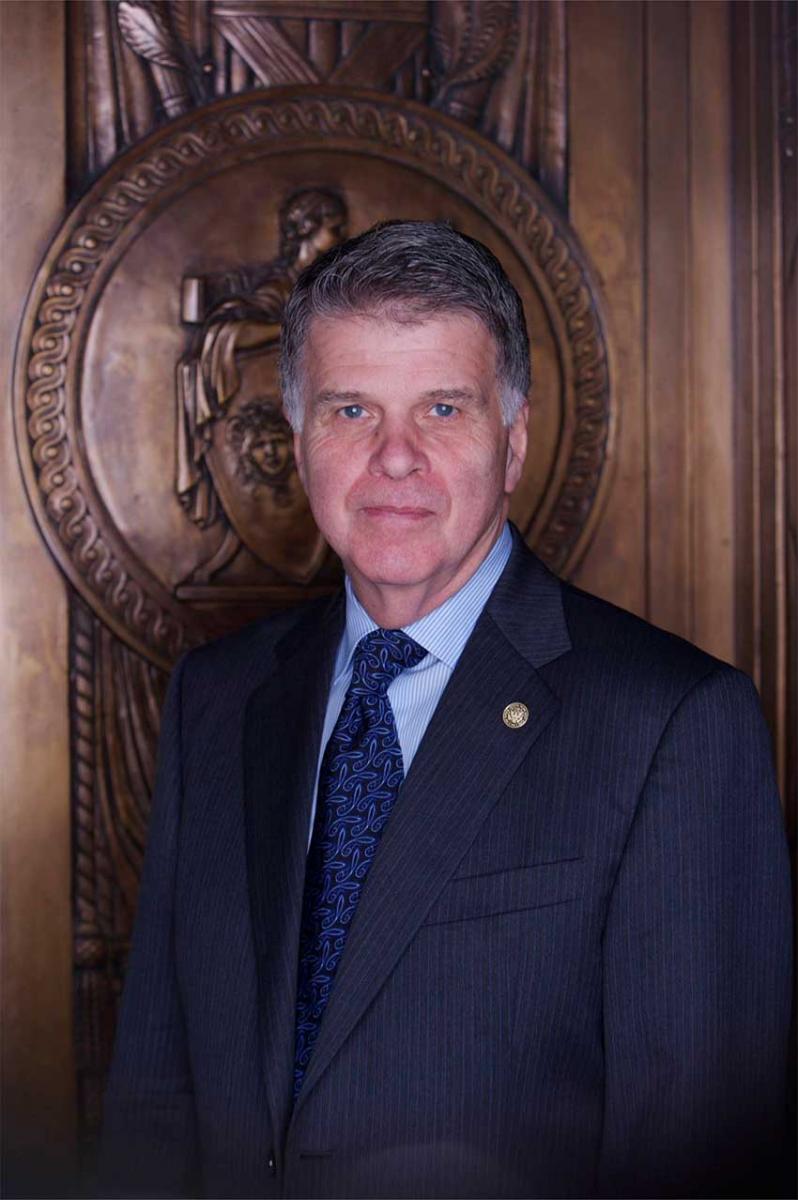
Remarks made by Archivist Independence Day Ceremony
March 24th, 2016
William McGowan Theater
National Archives Building
Good evening. I'm David Ferriero, Archivist of the United States, and I'd like to welcome you to the William G. McGowan Theater and the National Archives.
Welcome also to those of you joining us on our YouTube channel.
Tonight, we present the 9th Annual McGowan Forum on Women in Leadership: From the Computer Age to the Digital Age. This program will focus on the innovative and brilliant women in the computer technology sciences.
We have a panel that will discuss changes in the experiences, opportunities, and responsibilities for women in this field. And we'll present film clips about women who have paved the way for those in the forefront today.
This topic, computer technology, is a topic that affects us all.
Here at the National Archives, for example, we are digitizing our 12 billion pages as quickly as we can, with the help of volunteers willing to go through the endless numbers of boxes of records that date back to our Revolution.
On our web site, Archives.gov, the National Archives Catalog is the portal to our records and information about them. Here, you have access to more than two million electronic records now in our Electronic Records Archives, which currently has nearly 700 terabytes of electronic records from throughout the government.
Before we move on to tonight's program, however, I'd like to tell you about two other programs coming soon to this theater.
On Wednesday, April 13, at 7 p.m., a panel will discuss life for African Americans in the District of Columbia before the 1862 Compensated Emancipation Act. The program is presented in partnership with the National Museum of African American History and Culture, the DC Commission on African American Affairs, and the DC Commission on Emancipation.
Thursday, April 21, at 7 p.m., we will discuss the book, Eye on the 60s: The Iconic Photography of Rowland Scherman. A film will provide an intimate portrait of former LIFE magazine photographer Rowland Scherman and will be followed by a discussion by the film maker and one of Scherman's most famous images, then-12-year-old Edith Lee-Payne at the 1963 March on Washington.
If you want to learn more about these and all of our public programs and exhibits, consult our monthly Calendar of Events. Copies are in the lobby—along with a sign-up sheet so you can receive it by regular mail or email. You'll also find brochures about other National Archives programs and activities.
Becoming a member of the National Archives Foundation is yet another way to get more involved in the National Archives. The Foundation supports the work of the agency, especially its education and outreach programs. Pick up your application for membership in the lobby.
And speaking of the Foundation, tonight's program is made possible with the generous support of the Foundation and the William G. McGowan Charitable Fund. We thank them for their continued support of programs here over the years.
Now, I'd now like to introduce the Chair of the National Archives Foundation, A'Lelia Bundles.
A'LELIA BUNDLES SPEAKS – INTRODUCES LEO MCGOWAN
LEO MCGOWAN SPEAKS
Archivist returns to podium
Now, it is my pleasure to welcome to the stage our moderator for the evening, Megan Smith, who will introduce the films.
Named in September 2014, Megan is the nation's Chief Technology Officer in the White House Office of Science and Technology Policy. In this role, she serves as an Assistant to the President focused on how technology policy, data, and innovation will affect the nation's future. Her team's priorities include supporting the Administration's push for open data and information, advising on a wide range of technology policy issues, and recruiting more top technical talent to serve in government.
Before coming to Washington she served as Vice President of New Business Development at Google, leading the company's acquisitions of major platforms such as Google Earth and Google Maps.
Megan is an award-winning entrepreneur, engineer, and tech evangelist, with an intense focus on women in technology.
As an undergraduate at MIT, she was a member of the student team that designed, built, and raced a solar car 2,000 miles across the Australian outback.
A loyal daughter of Tech, she has bachelor's and master's degrees in mechanical engineering, completing her master's thesis at the MIT Media Lab on who's board she has served as well as the MIT Corporation and the MIT Technology Review Board.
In her spare time, Megan leads the quest for the original Declaration of Sentiments written by Elizabeth Cady Stanton and signed by 100 attendees at the Seneca Falls Convention in 1848.
Please join me in welcoming the Megan Smith to the stage.
 The Archivist of the United States is the head of our agency, appointed by the President of the United States.
The Archivist of the United States is the head of our agency, appointed by the President of the United States.